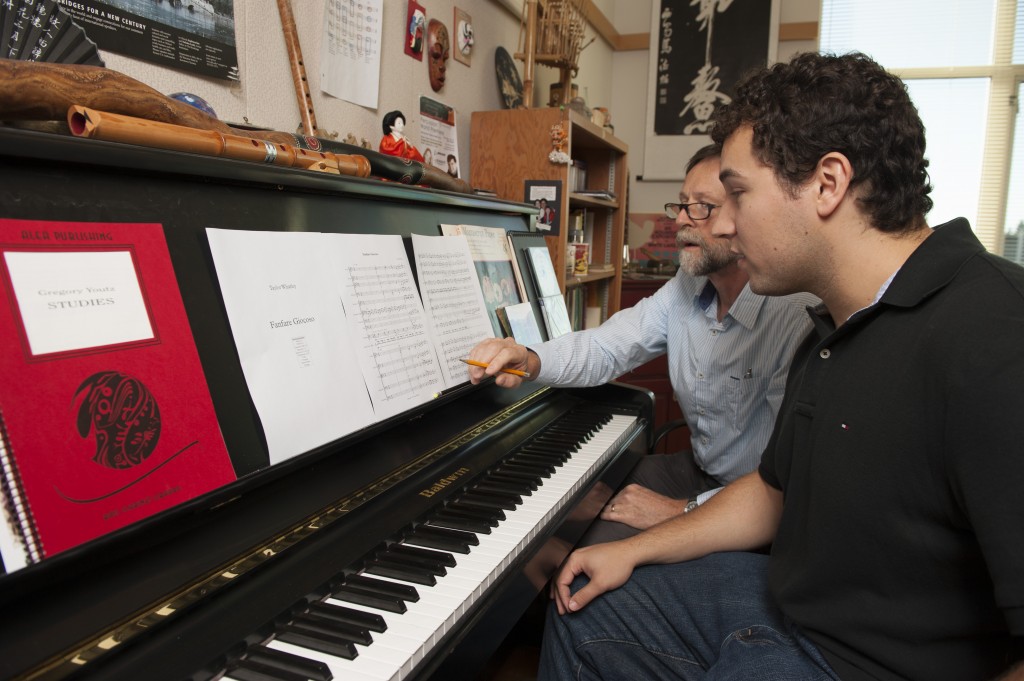Learning Outcomes

PLU School of Music, Theatre & Dance
The purpose and mission of PLU Music is to prepare and model for our students a lifetime of involvement in music. To that end, our goals are:
- To provide all PLU students with quality opportunities for making music individually from a wide selection of media;
- To provide all PLU students with quality ensemble experiences in an array of ensembles reflecting various media, genre, and performance ability;
- To provide non-performance students with exposure to the richness, variety, and rewards of the musical arts;
- To prepare qualified students for vocations in music;
- To present performances of quality and breadth to enrich and educate students, faculty, and the community;
- To nurture the faculty by supporting their individual and collaborative artistic endeavors, thereby enriching the teaching they provide.
Our objectives are:
- To contribute the major portion of preparation for the prospective professional musician;
- To make major contributions to the preparation of public school music specialists;
- To support the study of music in conjunction with an outside field;
- To provide a terminal undergraduate program for the prospective private music teacher;
- To contribute toward the general education of the “total person” in a liberal arts setting;
- To contribute in a significant way to the cultural impact on campus;
- To give artistic support to the total university program, as well as the community at large.
All students successfully completing degrees in music at PLU will…
- Perform significant repertoire—at a level allowing for artistic self expression—in at least one major performance area.
- Acquire comprehensive knowledge of the common elements of music, demonstrated through the interpretation and presentation of music in their performance medium.
- Apply the comprehensive academic knowledge and wide-ranging performance experience necessary to produce quality music of our contemporary, culturally diverse society.
- Demonstrate basic knowledge of music history and repertories in both the Western art music tradition and a vernacular (non-Western) tradition.
- Produce public presentations, at a near-professional level, of musical performances or projects that demonstrate appropriate theoretical, historical, aesthetic and performative skills.
In addition, candidates for the Bachelor of Music of Education degree demonstrate the following learning outcomes prescribed by the School of Education:
- The teacher candidate explains how learners grow and develop and implements developmentally appropriate and challenging learning experiences in a supportive learning environment.
- The teacher candidate uses the central concepts, tools of inquiry, structures of the discipline(s) and differing perspectives to create accessible and meaningful learning experiences.
- The teacher candidate uses multiple methods of assessment to guide teaching and learning.
- The teacher candidate plans instruction that supports every student in meeting rigorous learning goals.
- The teacher candidate uses a variety of instructional strategies to encourage learners to develop knowledge and skills.
- The teacher candidate engages in ongoing professional learning and reflects on practice in ways that meet the needs of each learner.
- The teacher candidate seeks appropriate leadership roles and opportunities to take responsibility for student learning, to collaborate with learners, families, colleagues, other school professionals.
Updated September 2023



Social Media